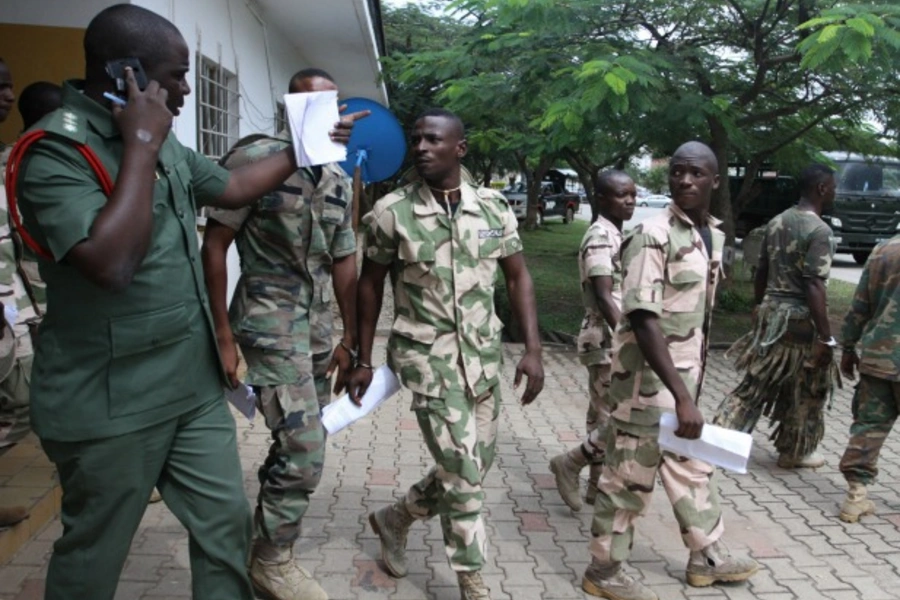Nigerian Coup Rumors

President Muhammadu Buhari’s office has called on the Nigerian public to ignore rumors of a potential coup. Nigeria has a history of military coups, and the president’s extended medical absence in London has led to anxiety about the country’s leadership. While the military government in Nigeria ended in 1999, the upper reaches of the military have long been incorporated into the Nigerian political class. Nevertheless, the possibility of a military coup remains.
Coup rumors tend to surface during periods of national uncertainty and anxiety, such as now. Similarly, there were coup rumors during former President Umaru Yar’Adua’s extended illness in early 2010 (the Nigerian Parliament eventually transferred power to Vice President Goodluck Jonathan ostensibly until Presidenty Yar’Adua was fit to return, but he died soon thereafter).
More on:
The latest spate of coup rumors was apparently set off by a “routine” warning by the chief of army staff against military political activity. Femi Adesina, the special advisor to President Buhari on media and publicity, urged Nigerians to ignore media reports that exaggerated what the chief of army staff had said: “Let’s take that position and not stretch it beyond what the military has said because they are the ones that can give us the definitive position and they have spoken on it.’’
A perennial concern is a “junior officer coup” by young radicals that could lead to a social revolution. This would be different from the Nigerian pattern of coups conducted by senior military officers, which were largely bloodless, during the long years of military rule. The fear is of something like the 1979 coup by Flight Lieutenant Jerry Rawlings in Ghana, which resulted in the execution of former chiefs of state and some of the political establishment. (In fact, Nigerians often exaggerate the extent of the Rawlings mayhem.)
As elsewhere in Africa, there is little transparency about the health of any president. The people around Yar’Adua did all they could to hide the fact that he was dying. Hence, there is widespread skepticism about positive reports of President Buhari’s medical status.
It is nearly impossible for outsiders to know if there is actually a coup plot afoot. Plots are clandestine, and even senior military officers may not always know what their subordinates are thinking.
More on:
 Online Store
Online Store